What is the problem with smoking and what are its effects?

Even if you know that 'cigarettes are bad for your body,' many people find it difficult to imagine the specific effects of smoking.
Smoking is Awesome - YouTube
First, Kurzgesagt states, 'The problem with smoking is that it feels so nice.'

Leaving aside the harmful effects of cigarettes on the body, it is true that smokers feel good when they smoke.

In addition, smoking can help people concentrate at work, provide an excuse to take regular breaks, stave off boredom, suppress appetite, etc. Smokers also tend to form cliques, so smoking can be a way to form social connections.

The lips are one of the most sensitive parts of the body, and having a cigarette in your mouth can be deeply satisfying. Despite these benefits, Kurzgesagt points out that tobacco can have serious harmful effects.

To begin with, cigarettes are a luxury item made by slowly burning dried tobacco leaves wrapped in paper, allowing the nicotine to be absorbed into the body. Chemicals and flavors are mixed into them to soften the harshness of the smoke, and some people just like the smell of tobacco, regardless of the nicotine.

95% of tobacco smoke is gases such as carbon dioxide and water vapor, while the remaining 5% is particulate matter called

When you inhale tobacco smoke, billions of particles interact with every tissue in your body, including your tongue, throat, and trachea.
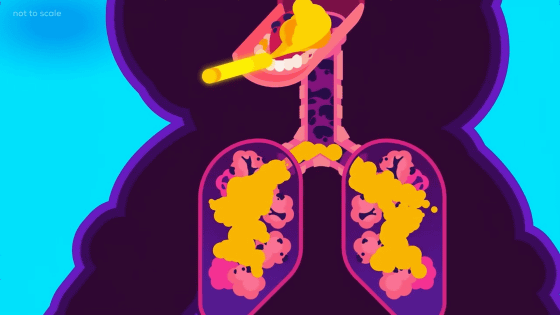
The airways near the lungs contain ciliated cells, which have hair-like structures covered with a layer of mucus that push out dust and bacteria.

However, when tar comes into contact with mucus, it turns into a sticky brown substance that bypasses the cilia and reaches
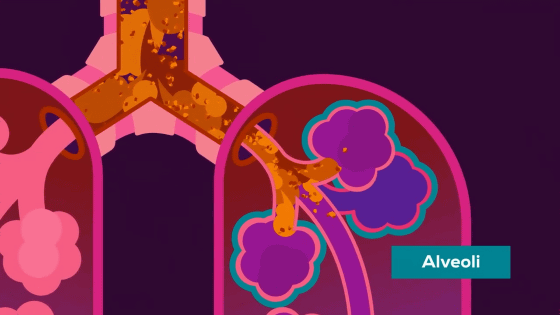
The alveoli are tiny air sacs through which we breathe, and because their walls are very thin, oxygen that reaches the alveoli can enter the blood and carbon dioxide in the blood can exit the alveoli.
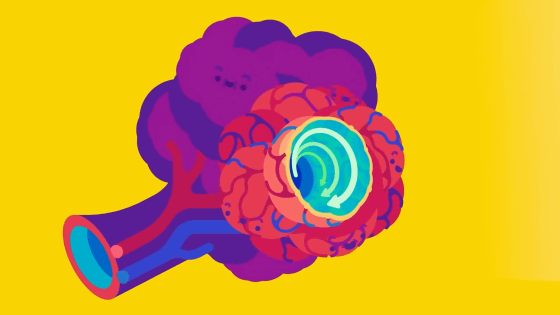
The problem here is that any nicotine that reaches the alveoli is also quickly absorbed into the bloodstream.
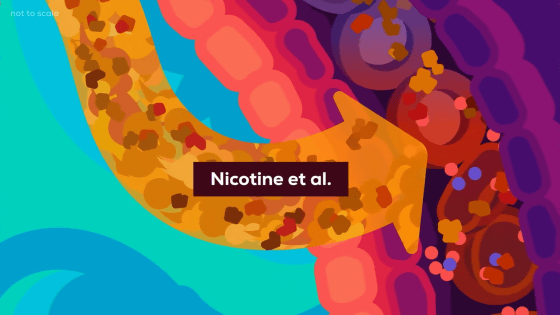
Nicotine reaches the brain fast enough that it can be felt by the body, and its effects are immediate.

If the brain has a control board, nicotine is like pressing all the buttons at once, releasing large amounts of hormones and neurotransmitters.
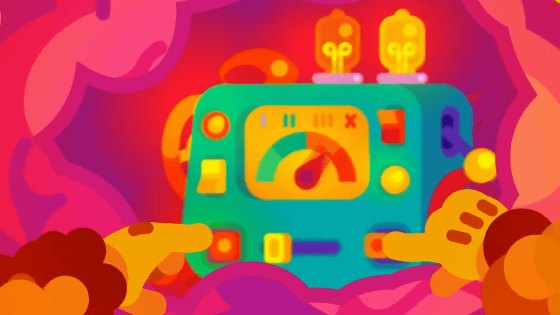
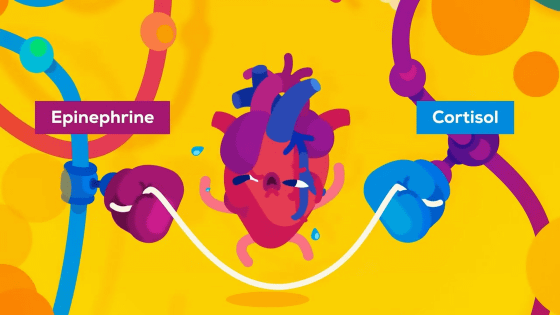

Nicotine has a stimulating and calming effect on people, and smoking increases attention and concentration. It also makes the nerves more sensitive to pleasant sensations, so the whole body relaxes. All of these effects combine to give smoking a pleasurable feeling.
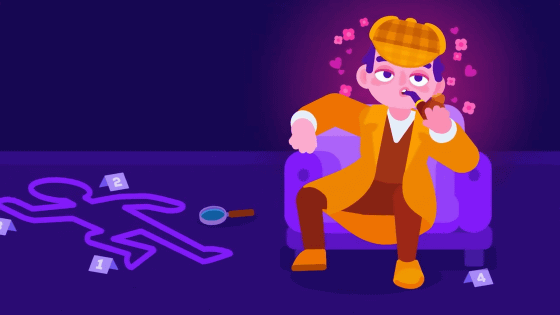
However, because this state is a special one caused by nicotine, the brain quickly resists by trying to return to a normal state.
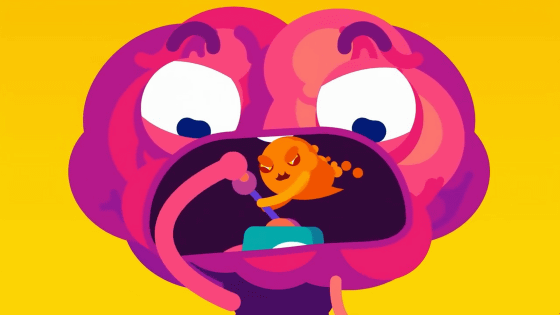
This isn't a problem as long as nicotine is in your blood, but once its effects wear off, it creates a major imbalance in your body.

The more you smoke, the stronger your body's resistance becomes, and before you know it, you're addicted to nicotine. Eventually, what started out as a pleasurable sensation becomes a way to suppress frustration and feel like yourself.
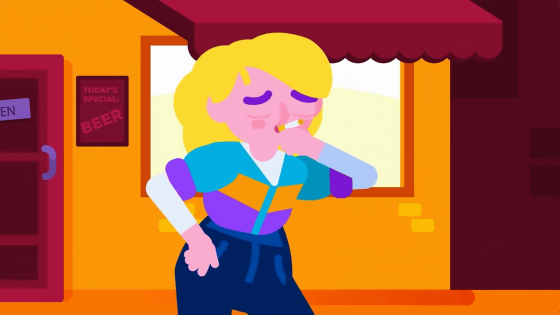
Additionally, tobacco contains thousands of chemicals that are harmful to the body, including nicotine, cadmium, lead, cyanide, hydrogen peroxide, and nitrogen oxides.
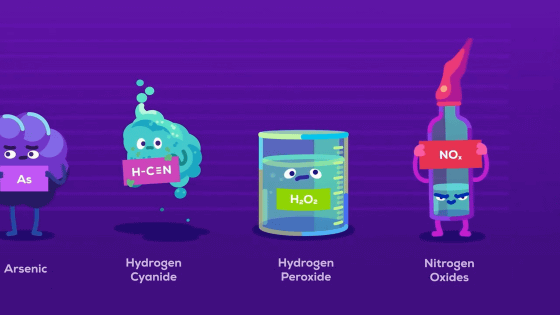
For example, carbon monoxide reduces the amount of oxygen your blood can carry.
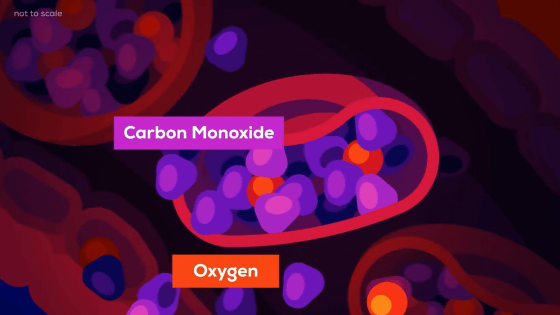
Some ciliated cells in the airways die as a result of the tar.
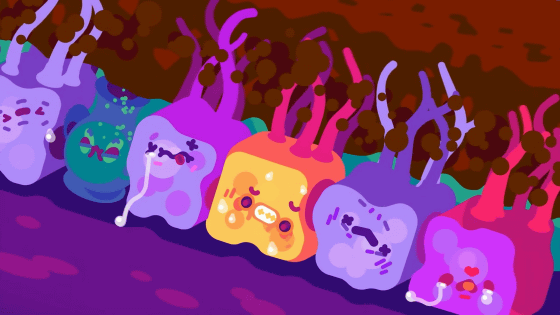
The alveoli also cannot withstand these stresses and burst, causing irreparable damage to the lungs.
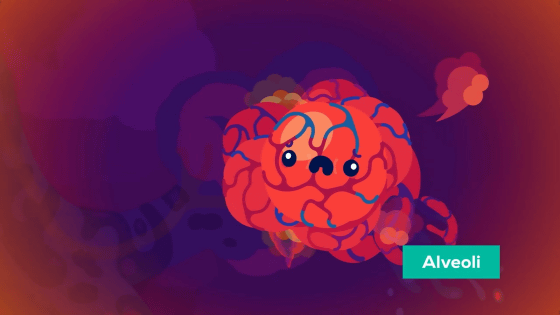
To combat this, your body will produce more mucus and cough it up in an attempt to expel the tar.

The immune system then becomes activated and
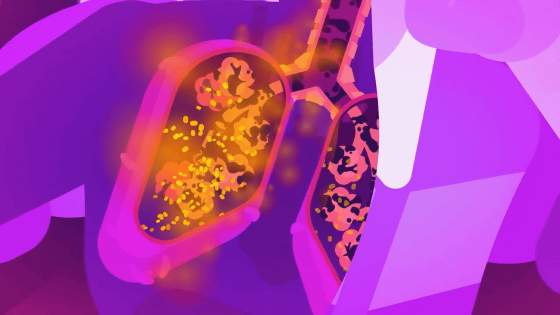
To make matters worse, the chemicals secreted by macrophages dissolve lung tissue, causing it to become scarred.
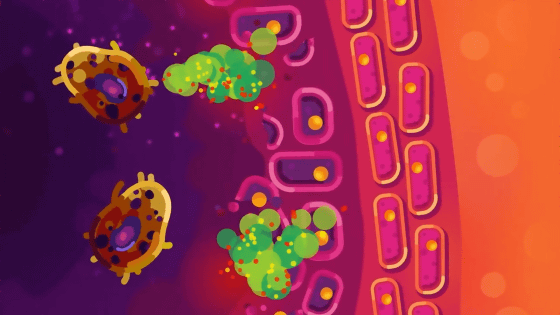
Nicotine also increases your heart rate and constricts your blood vessels, making them more susceptible to harmful substances and damage to the walls of your blood vessels. Proteins leaking from these scars can form clots, narrowing your blood vessels even further, creating a vicious cycle. This narrowing of your blood vessels puts a lot of stress on your heart.
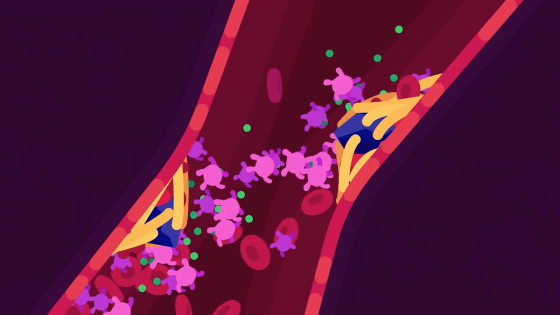
The effects don't just happen internally, though: Chemicals in tobacco produce enzymes that break down collagen in the skin, accelerating skin aging.
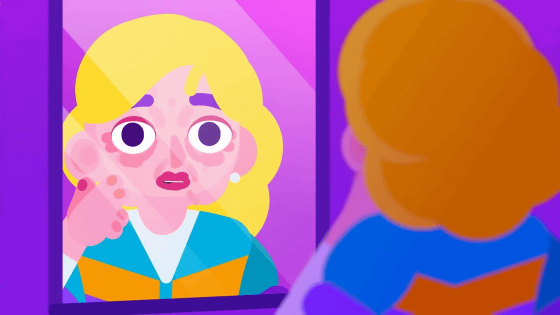
The worst effect, Kurzgesagt points out, is that it weakens the immune system's ability to fight off invading pathogens.
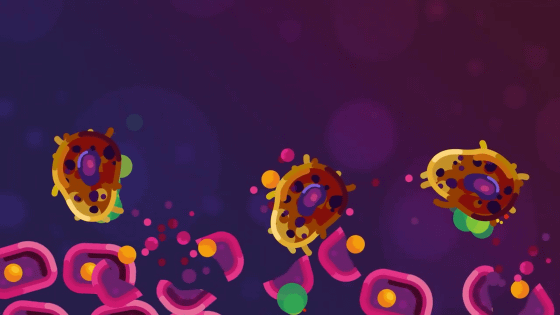
In short, smoking causes permanent damage to various organs.
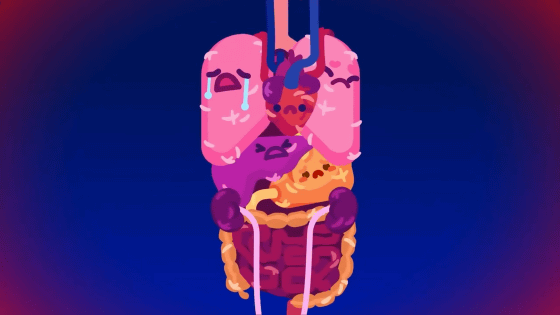
The strain on the cardiovascular system can eventually lead to heart attacks, strokes, and more.
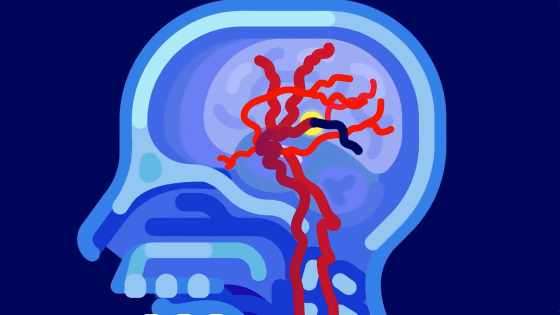
In smokers' bodies, the alveoli are irreversibly destroyed, eventually leading to
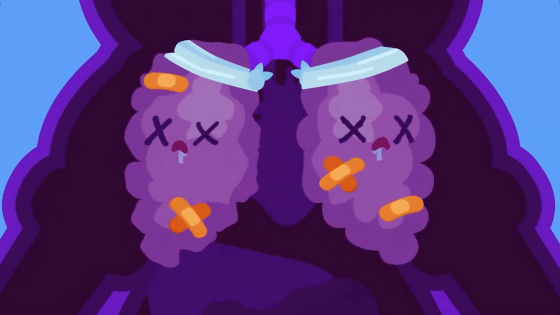
It has also been pointed out that smokers are at a higher risk of cancer, due to the fact that tobacco contains at least 70 carcinogens and weakens the immune system's ability to prevent cancer.
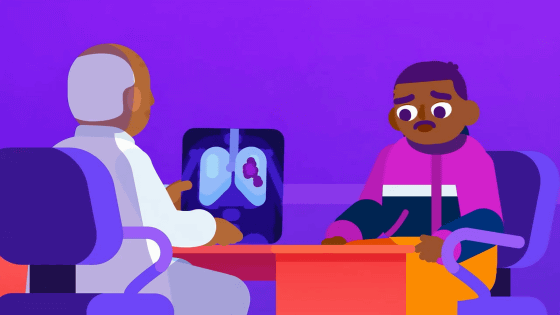
Kurzgesagt points out that smoking is one of the most dangerous legally permitted activities. It is said that the average smoker's life expectancy is reduced by about 10 years, which means that some people's life expectancies are reduced by only 5 years, while others' lives are reduced by as much as 25 years. It is difficult to know in advance how much your life expectancy will be shortened by smoking, and even if you do not die prematurely, you will continue to live with the symptoms of COPD.
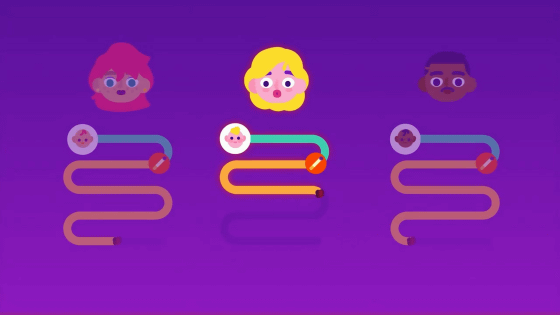
The reason why smokers do not quit smoking is not only due to their own will, but also because nicotine itself is highly addictive both mentally and physically, and because smoking is easy to do and therefore easy to develop into a habit.
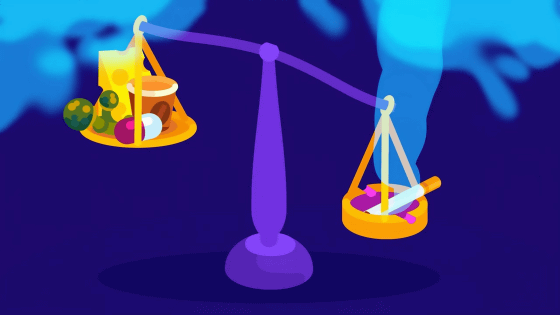
Another reason why smoking is difficult to quit is that it is associated with various social activities, such as smoking with friends or as a work break.

However, since it is known that many smokers start smoking in their teens, keeping young people away from tobacco could reduce the number of smokers. In fact, 34% of adults smoked in 2000, but by 2020, this had fallen to 23%, and the number of smokers is steadily decreasing.
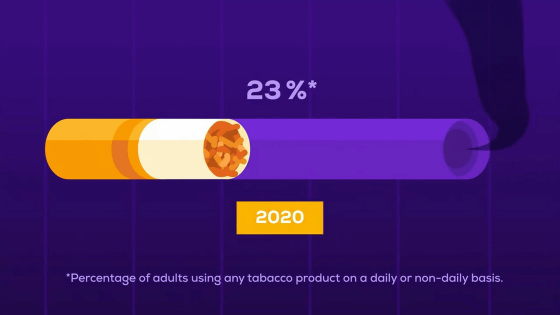
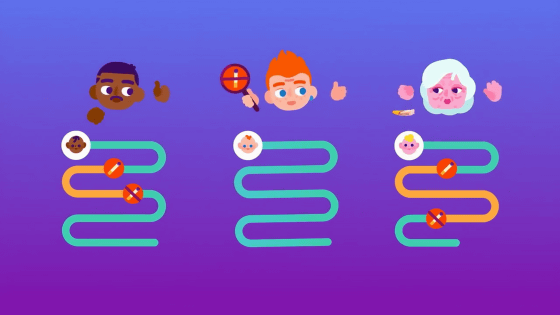
Kurzgesagt said he doesn't want to force anyone to smoke, but that even smokers should be aware of what's happening to their bodies, and warned that while cigarettes may solve the problem temporarily, the effects will be permanent.

Related Posts:







